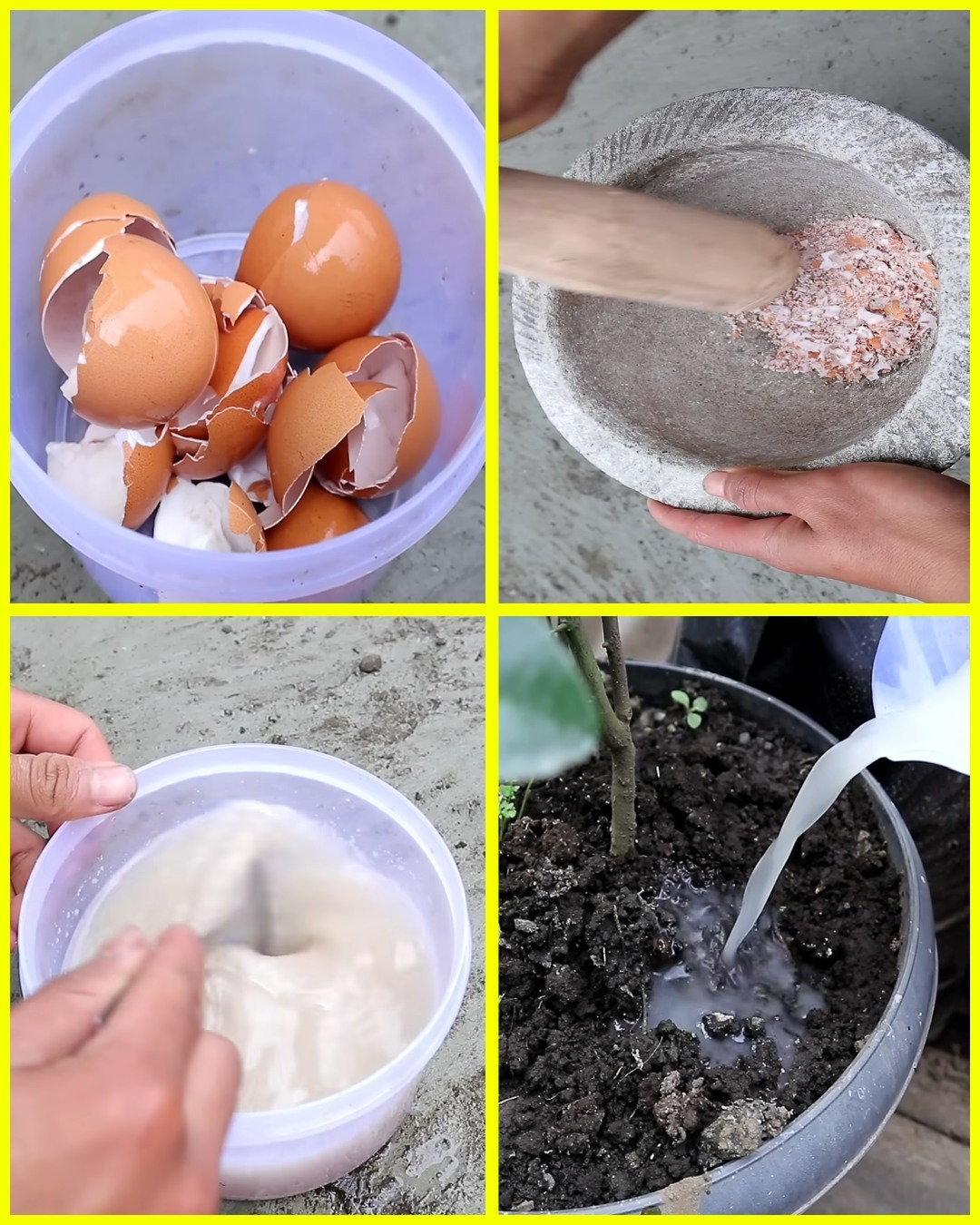ADVERTISEMENT
### **Benefits of Using Eggshells in the Garden**
Now that we know eggshells are packed with beneficial nutrients, let’s take a closer look at the many ways they can help improve the health of your plants and garden.
#### **1. Enhances Soil Health**
Eggshells can play an essential role in enriching the soil. As they decompose, they release calcium into the soil, which is vital for promoting strong plant cell walls and root systems. Plants with a strong root system are better able to absorb water and nutrients from the soil, making them healthier and more robust.
In addition to calcium, eggshells also improve soil structure by increasing drainage and aeration. If you have heavy clay soil or compacted soil, adding crushed eggshells can help break up the soil and improve its texture, allowing air, water, and nutrients to penetrate more easily.
#### **2. Provides Calcium to Plants**
Calcium is one of the most important nutrients for plants, but it’s often overlooked. Many plants, particularly tomatoes, peppers, and eggplants, suffer from a condition known as **blossom end rot**, which is caused by a calcium deficiency. This condition results in dark, sunken spots on the bottoms of fruits. By adding eggshells to the soil, you can provide a natural and slow-release source of calcium to prevent blossom end rot and promote healthier fruit production.
In addition to preventing blossom end rot, calcium helps plants develop strong stems and leaves, encourages root growth, and aids in nutrient uptake. This is why adding eggshells to your garden is particularly beneficial for vegetable plants.
#### **3. Improves pH Levels**
Soil pH plays a significant role in how well your plants grow. Plants prefer different pH levels depending on the species, but most plants thrive in slightly acidic to neutral soil (pH 6 to 7). However, many soils are either too acidic or too alkaline, which can stunt plant growth and reduce nutrient availability.
Eggshells can help balance soil pH. They are alkaline and can help raise the pH of acidic soils, making them more neutral and more suitable for a wider range of plants. This is particularly helpful for gardeners with naturally acidic soils who are trying to grow plants that prefer more neutral or slightly alkaline conditions.
#### **4. Natural Pest Control**
Eggshells are also an effective, natural way to deter pests from your garden. When crushed and scattered around the base of plants, eggshells act as a physical barrier for soft-bodied insects such as slugs and snails. These pests are deterred by the sharp edges of the crushed shells, which make it uncomfortable for them to crawl over.
In addition to slugs and snails, eggshells can help protect your plants from larger pests like rodents and cats. The coarse texture of the crushed shells can discourage these animals from digging in your garden beds or disturbing your plants.
#### **5. Helps with Composting**
Eggshells are an excellent addition to your compost pile or bin. As they break down, they add valuable nutrients like calcium and trace minerals to the compost, which will be passed on to your plants once the compost is used in your garden. The eggshells decompose relatively slowly, providing a slow release of nutrients over time. This makes them an ideal addition to compost, as they contribute to both soil health and nutrient density.
Additionally, eggshells help balance the carbon-to-nitrogen ratio in compost. Compost piles that are too rich in nitrogen (like those with lots of kitchen scraps) can become slimy and smelly, while those with too much carbon (like dried leaves) can become dry and slow to break down. Eggshells, being high in calcium carbonate, help balance this ratio and speed up the composting process.
#### **6. Helps with Seed Starting**
Eggshells are also a fantastic medium for starting seeds. The shells provide a natural, biodegradable container that helps protect young seedlings during the early stages of growth. Simply crack the eggs, remove the contents, and rinse the shells thoroughly. Then, fill them with potting soil, plant your seeds, and place the eggshells in a tray or carton.
As the seedlings grow, the eggshells provide extra calcium and nutrients, promoting strong root and stem development. Once the seedlings are large enough, you can transplant them into the garden or larger containers, and the eggshells will decompose naturally, adding more nutrients to the soil.
For Complete Cooking STEPS Please Head On Over To Next Page Or Open button (>) and don’t forget to SHARE with your Facebook friends
